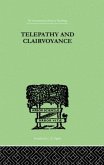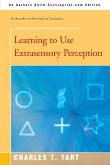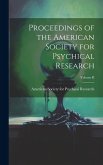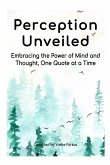If extrasensory perception is a common human ability, why can't we all score high on ESP tests? This book answers the question by describing psychological determinants of success and failure in extrasensory perception
Hinweis: Dieser Artikel kann nur an eine deutsche Lieferadresse ausgeliefert werden.
Hinweis: Dieser Artikel kann nur an eine deutsche Lieferadresse ausgeliefert werden.








